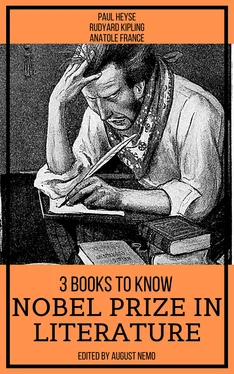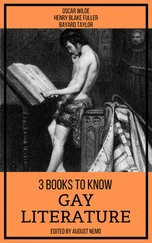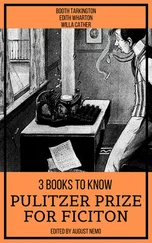"Are you still up, Fräulein Christiane?" he said at last, advancing to the threshold of the ante-room.
"As you see, Herr Doctor," she replied in a deep voice, without being in the least disturbed. "The heat—and perhaps also this book—will not permit me to sleep. I was so absorbed that I did not even hear you come in. Besides, it is quite time to go to sleep. Good night."
"May I be permitted to ask, Fräulein, what book it is that will not let you sleep?" he said, still in the dark entry.
"Why not?" was the reply, after some little hesitation. "Besides, you have a special right to do so, for it is your book. The proprietor of the house, Meister Feyertag, borrowed it of you several weeks ago, and yesterday told me so much about it, that I begged it of him for a day. Now I can not leave it."
He laughed, and stepped within the room. "So the wicked rat-catcher, to whose pipe all the men and women now dance, even though they often declare his tunes horrible, has seized upon you also. You have certainly just read the chapter on women, whose most striking portions our worthy host daily quotes to his wife; and though it makes you angry, you can not drive it out of your mind. The old sinner knows how to begin: he hasn't read Göthe for nothing.
"'Doch wem gar nichts dran gelegen
Scheinet ob er reizt und rührt,
Der beleidigt, der verführt!"
"You are mistaken," she replied, now sitting erect, so that her face was shaded by the green screen on the lamp. "True, I have read the chapter, but it made no special impression upon me, either favorable or otherwise It is a caricature, very like, and yet utterly false. He seems to have known only the portion of our sex called 'females': 'tell me with whom you associate,' etc. Well, we are used to that. But where I have become inspired with a great respect for him, is from the chapter entitled 'The Sorrows of the World.' I could, at almost every sentence, make a note or quote an example from what I have myself experienced or witnessed in others. And I also know why, notwithstanding this, we like to read it; because he relates it without a murmur, so calmly and in such a matter-of-course manner, that we see it would be foolish to complain of it, or to hope for anything better for our poor miserable selves, than is bestowed upon a whole world. You must lend me his other books."
"My dear Fräulein," he replied, "we will discuss the question further some other time. You must not suppose that I am one of the professors of philosophy who wish to silence this singular man. It is a pity that he is not still alive to be asked the various and numerous questions, from which he carefully retired to his sybarite seclusion in the Swan, at Frankfort-on-the-Main. But be that as it may, it is too warm to-night to philosophize. Throw Schopenhauer aside, Fräulein, and play something for me,—the Moonlight Sonata, or any sweet, pensive harmony. I should like to cleanse my ears from the ballet-music to which I have been compelled to listen."
"You! listen to ballet-music?"
"Yes; it sounds ridiculous, but nevertheless it is true. How did it come about? You know, at least by sight, our tyrant, the so-called medical counsellor, my university friend and physician in ordinary. He comes up to our hen-roost every day. Well, I have overworked myself a little this summer, finishing a prize essay,—a haste that was most unnecessary, since with my heresies I am safe from academical honors. However, I gained the second premium,—a heavy head, with such rebellious nerves that my state almost borders on a disordered brain, or one of the mild forms of lunacy. A journey, or a few weeks on the Rhigi, would be the best cure. But our physician in ordinary, for excellent reasons, prescribed no such luxurious remedy. It would be much cheaper, he thought, to let the manufactory of thought rest for a while. He proposed to me to play cards, make a collection of beetles, train a poodle, or fall in love. Unfortunately I had neither inclination nor talent for any of these very simple and undoubtedly efficacious remedies. So, early this morning, he brought me a ticket to the opera-house: he always has acquaintances before and behind the scenes. A new ballet was to be performed, to hear and see which would repay even an old habitué, let alone a whimsical fellow like myself, who had not entered a theatre for ten years. Well, I could not escape the experiment. He who has a doctor for a friend must occasionally submit to try new remedies, and a ballet is better than a silver tube in one's stomach."
He smiled,—a half-satisfied, half-mysterious smile.
"Play me the Moonlight Sonata," he asked again. "Life is beautiful, Fräulein Christiane, in spite of all the sorrows of the world. What lovely roses you have in that vase! Permit me—"
He took a small bouquet, which was standing on the table, and pressed it against his face. The full-blown flowers suddenly fell apart, and the leaves covered the book.
"Oh! dear," said he, coloring with embarrassment, "I have done a fine thing now. Will you forgive me, dear Fräulein?"
"Certainly, Herr Doctor, if you will be reasonable now, and go up stairs to sleep off your intoxication. For you are in a condition—You must know how it happened."
"I? I did not know—"
"Any better than to ask me to play for you at half-past two o'clock in the morning! We shall wake the people in the house, and others can see us,—me from the opposite windows. And besides—"
She had risen, and now repressed the rest of the words that were on her lips. After pacing several times up and down the heated room, which contained little furniture except her bed, her piano, and a bookcase, she pushed back her hair from her brow and shoulders, and folding her bare arms across her chest, stood quietly at the window. A sigh heaved the breast which had learned to keep a strict guard over its thoughts and feelings. In this attitude she waited, with apparent calmness, for him to take his leave.
"I must really seem a very singular person," he said, in a frank, honest tone. "We have lived in the same house for months, and the only use I have made of this vicinity, was by my first and only visit, when I begged you not to play during certain hours, which I had selected for study. Now I enter your room in the middle of the night, and take the liberties of an old acquaintance. Forgive me, on account of my disordered brain, dear Fräulein, and—may you have a good night's rest."
He bent his head slightly, and left the room.
As soon as she heard him go up stairs, she hurried into the little ante-chamber, closed the outer door, bolted it, and then stood still a short time, listening, with her trembling body pressed close against the door, and her hands clenched on the latch. He walked slowly up a few steps, and then paused again, as if he had suddenly become absorbed in some dreamy thought. She shuddered, sighed heavily, and tottered back into the sitting-room. Her dress seemed too tight for her, for she slipped out of it like a butterfly from its chrysalis, and then in the airiest night costume, sat down at the open piano. It was an old, much-worn instrument, of very poor tone, and as she ran her slender fingers lightly over the keys, it sounded in the entry outside like the distant music of a harp.
The young man had just reached the topmost stair when he heard it.
"There! she is playing the sonata, after all," he said to himself. "A strange, obstinate person. What can she have suffered from fate? To-morrow I will take more notice of her. It's a pity she is so ugly, and yet—what does it matter? There is a charm in her finger-tips. What wonderful music!"
He stood still a moment listening to the familiar tones, which seemed to express all the familiar thoughts that had been wandering in a confused chaos through his mind. Suddenly he heard a voice from within.
Читать дальше












